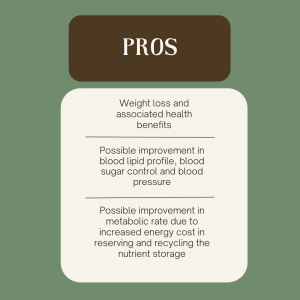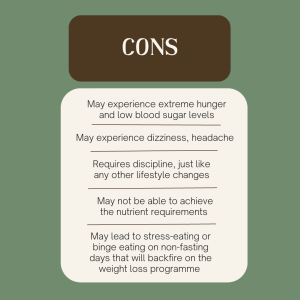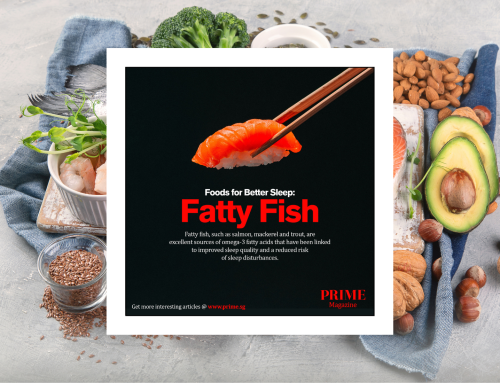Intermittent fasting is an eating pattern that alternates between periods of fasting and eating. Basically, intermittent fasting can be grouped into 2 categories.
Refrain from calories for an extended period on a daily basis (can be attained by spacing dinner and breakfast for at least 14 hours)
Taking very low-calorie diet for a number of days and eating normally for the remaining days on a weekly basis or monthly basis. For instance, the famous 5-2 diet allows eating normal healthy meals for 5 days in a week and then only consuming around 500 to 600 kcal on 2 non-consecutive days, by taking 3 small meals or 2 slightly bigger meals a day.


Who is this diet best for?
Intermittent fasting is suitable for overweight and obese adults without serious underlying medical conditions. Those who want to reap the possible health benefits of a calrie restriction diet can practise intermittent fasting too. It is not suitable for teenagers, children, pregnant and nursing ladies, frail individuals especially the elderly, those with uncontrolled diabetes, hypertension and on medication or therapy that will affect blood sugar levels or require regular meal times. Do bear in mind that intermittent fasting without proper meal planning may be risky in terms of nutrient adequacy.
Do consult a dietician for a thorough assessment, recommendations and necessary supplementation, if you are keen to practise intermittent fasting.










